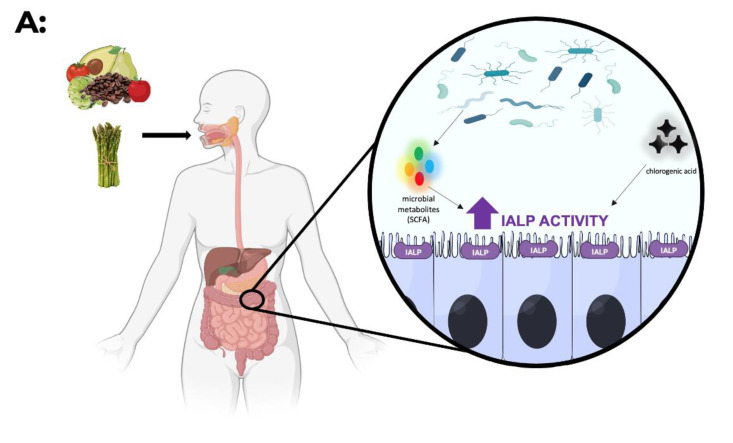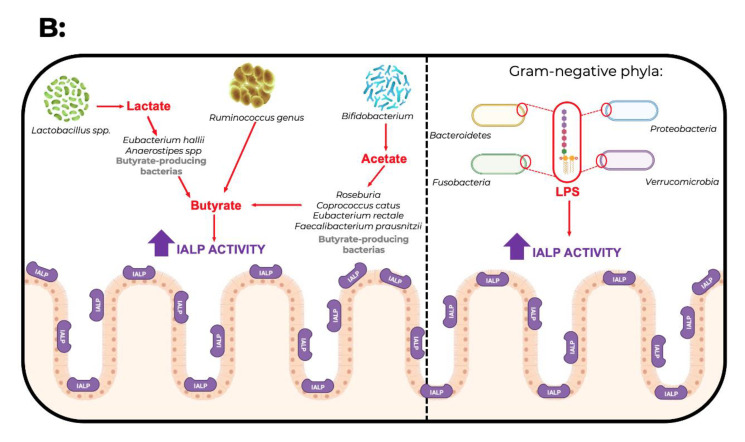Figure 2.
(A) Diet has an impact on the modulation of IALP (intestinal alkaline phosphatase) activity. Foods rich in fermentable fiber (e.g., artichoke, asparagus) are used as a substrate for the microbiota. This fermentation results in the production of short-chain fatty acids (e.g., butyrate) that increase IALP activity. On the other hand, consumption of foods rich in chlorogenic acid (coffee, artichoke, apple, pear, tomato, and avocado) also increases the activity/expression of IALP. (B) The gut microbiota may modulate the expression/activity of IALP. On the one hand, butyrate-producing bacteria (Gram-positive bacteria) may increase IALP due to the increase in butyrate. On the other hand, Gram-negative bacteria may also increase IALP due to the presence of LPS (the presence of LPS as a substrate may enhance enzyme activity).


